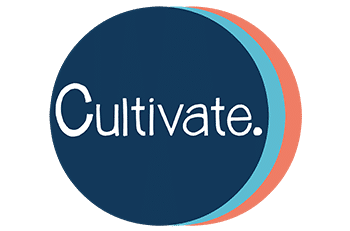Tuition can play an enormous factor when considering your student’s collegiate journey, and financial aid can be a determining factor regarding the opportunities your student might receive. Even if cost isn’t an issue for you, there are several reasons you should still apply for Financial Aid and FAFSA – a big reason being access to extremely low student loan interest rates.
FAFSA is a free application that grants access to the largest source of financial aid to pay for college or career school (1). It’s common for incoming college students to skip this application because they assume they won’t qualify. However, most students are eligible for some form of financial aid (2).
Even if your student can’t qualify for a federal grant that doesn’t need to be repaid, they may qualify for federal student loans which offer extremely low-interest rates and flexible payment plans. These financial aid opportunities are given on a first-come-first-served basis, so complete the FAFSA as soon as possible this October to see what you qualify for (3).
If your student is applying to private institutions, be sure to complete a CSS profile, which is the private school equivalent of the FAFSA application and holds similar benefits.
Scholarships and Additional Financial Aid Options
Beyond the typical Financial Aid and FAFSA applications, there are also a vast amount of scholarship and grant opportunities available to students of all backgrounds. Community-based organizations provide financing that support diversity and grant opportunities for students with specific backgrounds and interests.
Fly-in programs are available at participating universities which reimburse (or partially reimburse) students who must fly to the college campus. There are also programs set in place to allow students to choose from hundreds of undergraduate programs outside their home state, and pay no more than 150% of that institution’s resident tuition rate. In addition, there are several search-engine-based websites that allow you to explore hundreds of scholarships while getting matched with scholarships that your student is eligible for.
Let’s go over some of those options below.
Institutional Scholarships
Institutional aid is offered to students by the schools they plan to attend. Colleges may offer their own loans, but more often institutional aid is given in the form of grants and scholarships to students who either demonstrate financial need or qualify academically. To be awarded these scholarships, a FAFSA and/or CSS profile must be completed. GPA, test scores, and other factors determine eligibility, so visit university websites to find specific details.
Read this blog to find out more ways to better your chances of getting the scholarships you need.
Registration for Corporate Scholarship Clearinghouses
Search lists of millions of scholarships by choosing a category or get matched to college scholarships you are eligible for. Explore the links below and find access to thousands of scholarship opportunities:
Fastweb, FinAid, The College Board, Scholarship Monkey, Cappex, Chegg, Peterson’s, Scholarships.com, Unigo, Going Merry, Niche, Sallie Mae
Community-Based Organizations
Below are well-renowned organizations that offer scholarships to a wide variety of students. These foundations aim to benefit their communities by supporting diversity and granting opportunities for students with specific backgrounds and interests. Follow the links below to see what you qualify for:
Coca-Cola, Jack Kent Cooke, Equitable Excellence Scholarship (formally AXA Achievement), Gates Millennium, Ron Brown, Ronald McDonald, Chamber of Commerce(s), Junior Achievement, Horatio Alger, Chick Evans, Kenny Guinn, Jo Marshall, Bruce Fishkin.
Fly-in Programs
Fly-in programs are exactly what they sound like- colleges and universities will either partially or fully reimburse students who need to take a plane to visit their campus. Many fly-in programs are tied to GPA, test scores, extracurricular involvement, or intended major.
- Questbridge: for lower-income students
- Bridges Program: Miami University in Ohio
- College Greenlight (search all fly-in programs)
Western University Exchange
The Western Undergraduate Exchange (WUE) is an agreement among WICHE’s 16 member states and territories, through which 160+ participating public colleges and universities provide steep nonresident tuition savings for Western students. Through WUE, eligible students can choose from hundreds of undergraduate programs outside their home state, and pay no more than 150 percent of that institution’s resident tuition rate. To see if your student’s GPA, Test Scores, and intended major qualify for WUE tuition, check the WUE Savings Finder online.
Additional Scholarship Resources To Explore
- Student or family member employment (Smith’s, firefighters, police, casinos, and more). Many offer scholarships to non-employees, for example, the Henderson Firefighters Benevolent Association Memorial Scholarship.
- National Society of High School Scholars & other honor societies.
- Chamber of Commerce(s). Las Vegas Chamber, Asian, African American, Latinx, etc.
- Benevolent Societies: Lion’s Club, Kiwanis Club, Ronald McDonald House Charities
- Public Education Foundation (PEF).
Resources

